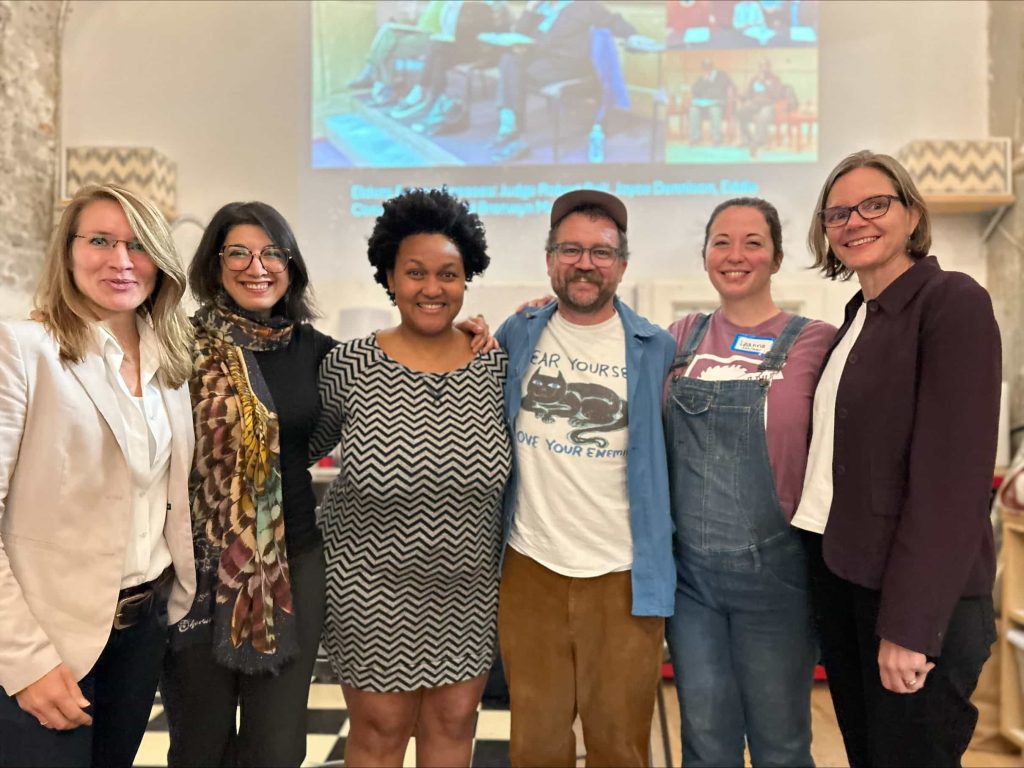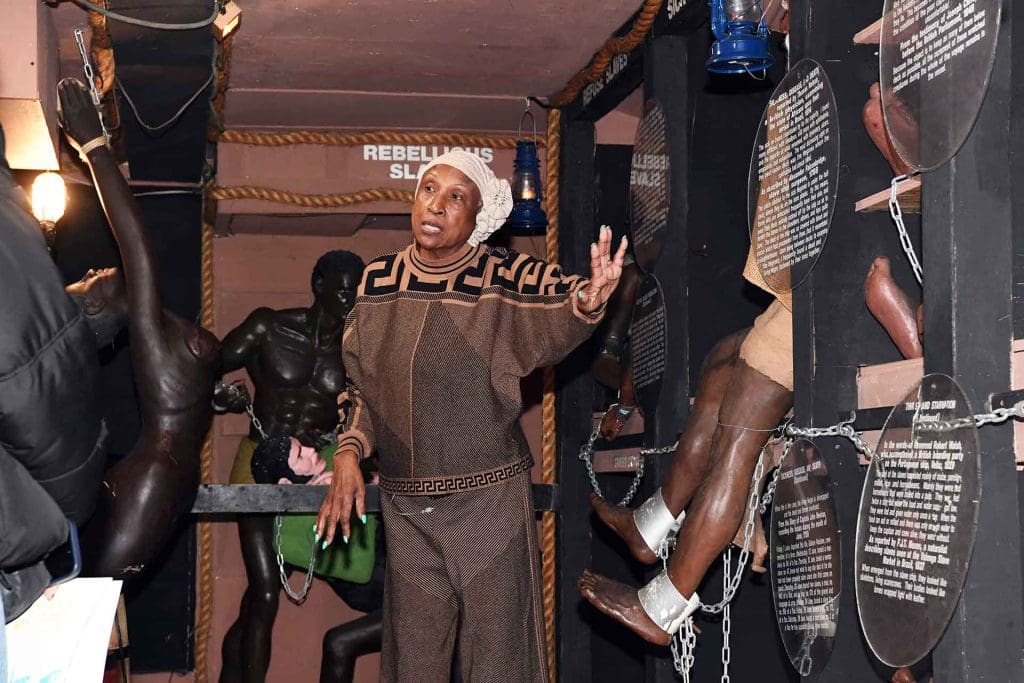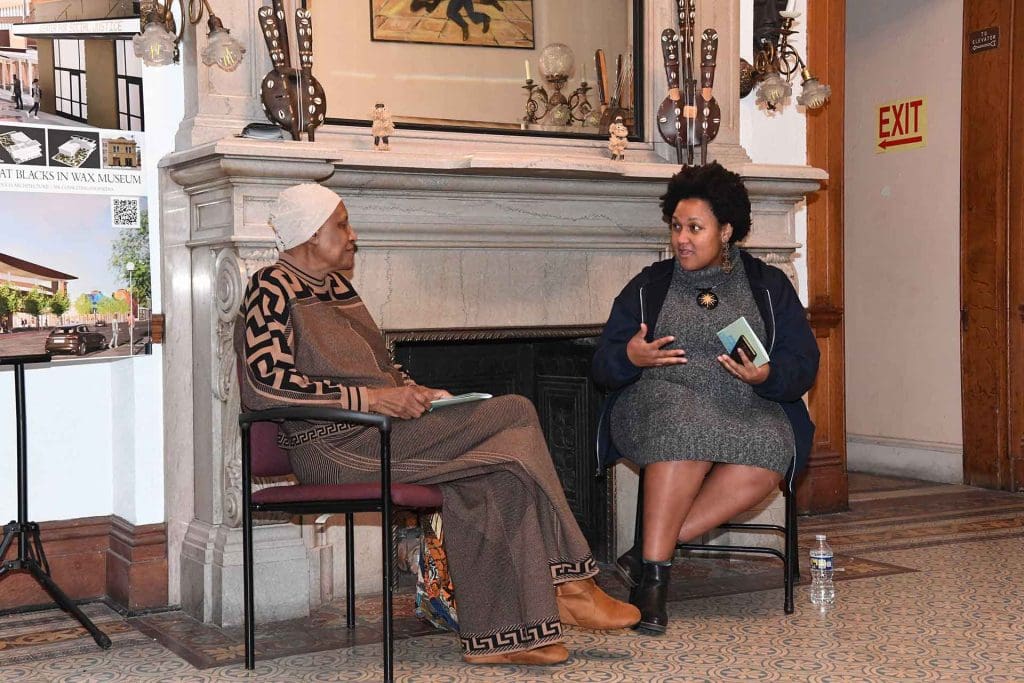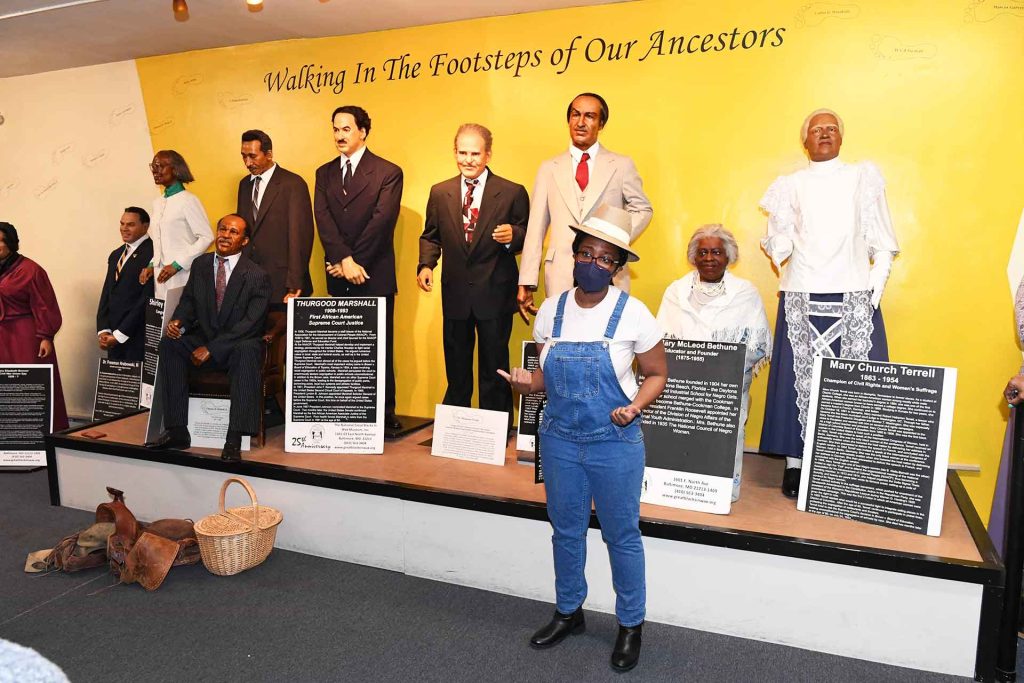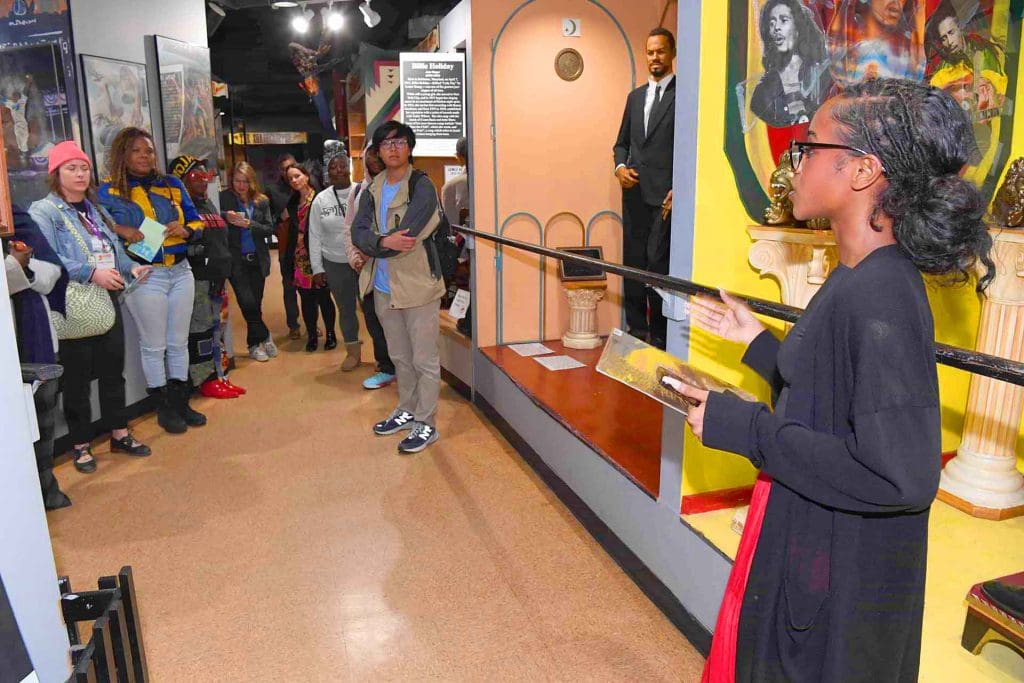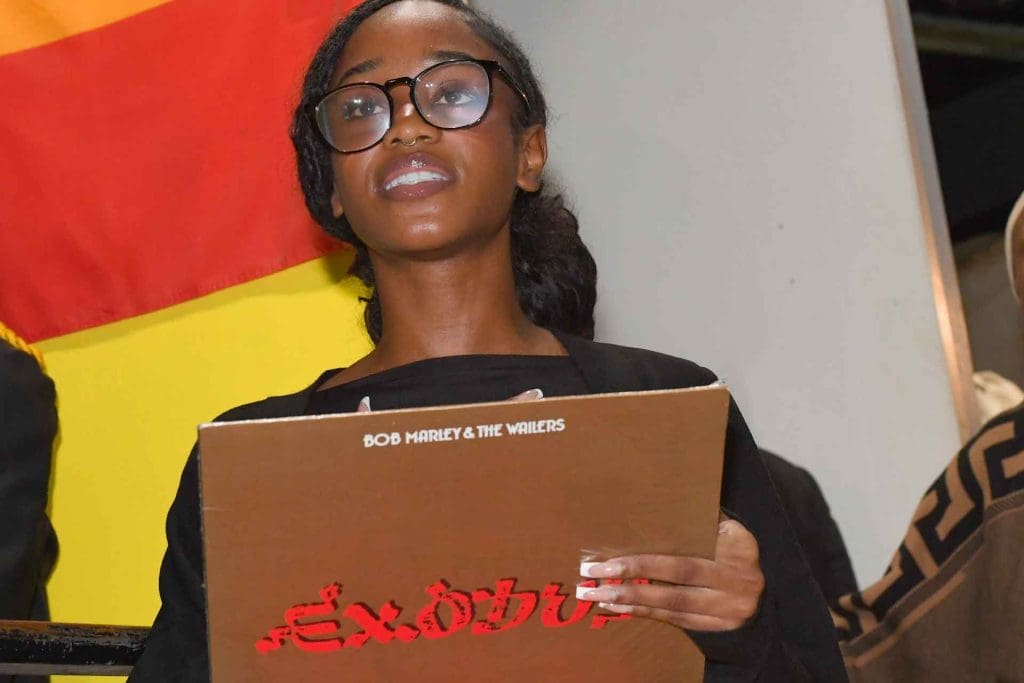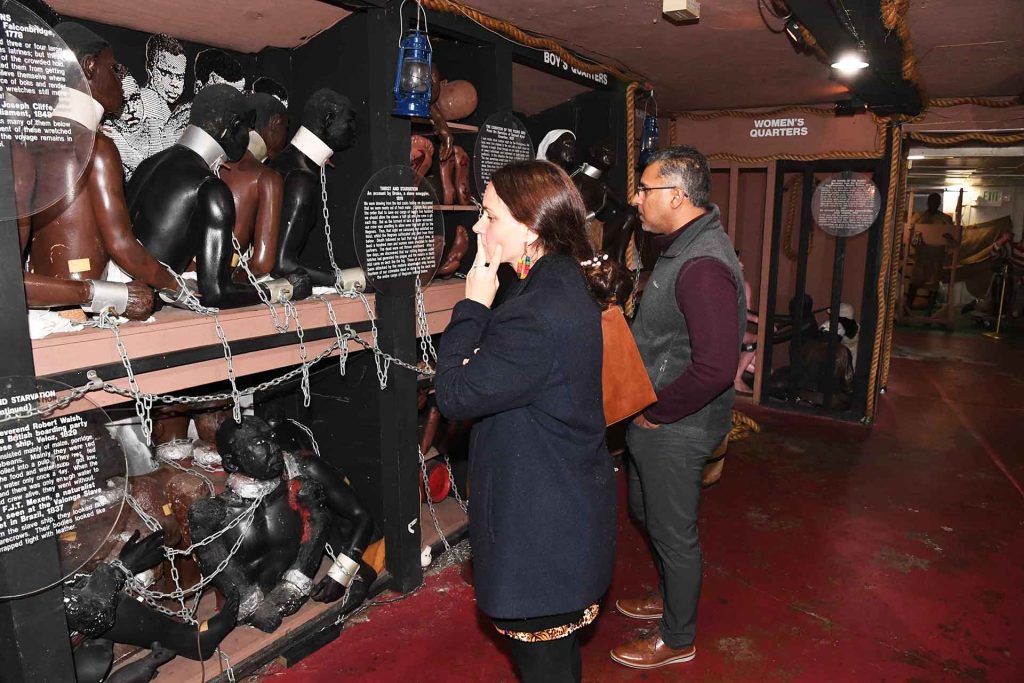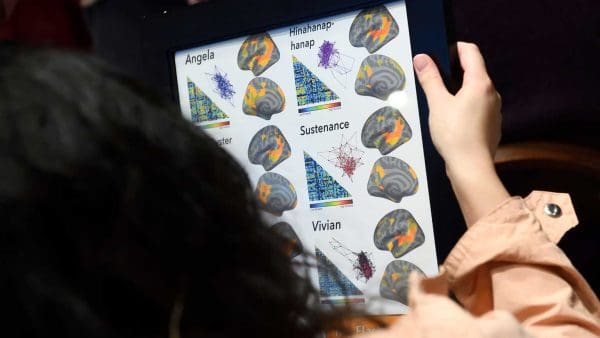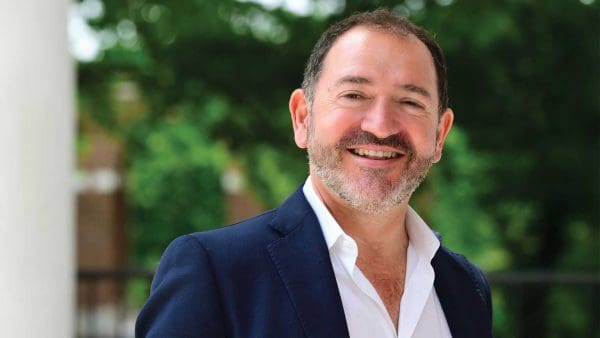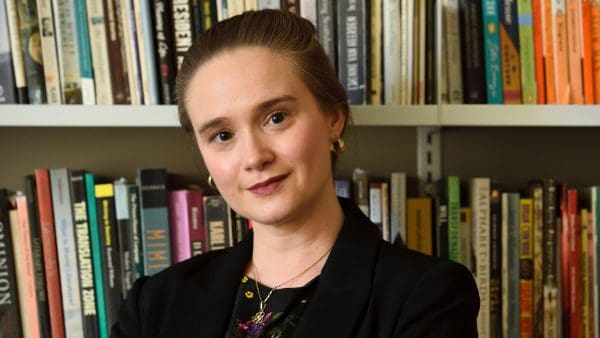JHU scholars share ways to learn with community at national conference in Baltimore.
At Baltimore’s National Great Blacks in Wax Museum in November, Johns Hopkins students and alums performed short plays, monologues, and poems in a demonstration of the power of community-based learning.
Students developed their storytelling performances during a course offered over the last several years, Blackstorytelling: Public Health in the Black World. “What about performance offers a unique opportunity to learn from and with communities? How might dramatic performance be used to share information while learning from an audience?” the course asked. Performers included Angela Serwaa-Marfo ’24 and Kailyn Swift ’25.
Photography by Jim Burger
Co-taught by Jasmine Blanks Jones—executive director of Hopkins’ Center for Social Concern (CSC) in the division of Student Affairs and assistant research scholar in the Krieger School’s Chloe Center for the Critical Study of Racism, Immigration, and Colonialism—and Janice The Griot Greene, who has been telling African, African American, and multicultural stories for over 25 years, the course connected public health education efforts in Africa to community health education in Baltimore through the Blackstorytelling tradition. Through a partnership with the museum, students also learned from co-founder and president/CEO Joanne Martin, who shared a fireside chat with Blanks Jones during the event.
The occasion was one of a pair of sessions of the American Studies Association’s 2024 annual meeting, held in Baltimore this year. The twinned sessions highlighted the Engaged Scholar Faculty and Community Partner Fellows program at the CSC, which supports undergraduate courses that invite community organizations into the classroom and that connect faculty and students with Baltimore City neighborhoods.
“These courses are transformational for our students because they are not only learning to put course content to action, but they are doing so alongside of Baltimore community members who have long been working towards building the world they want to live in with their neighbors,” Blanks Jones said. “The ASA conference theme centered grounded engagement, and we delivered with insights into our course model that connects students, faculty, and community members in everyday civic actions.”
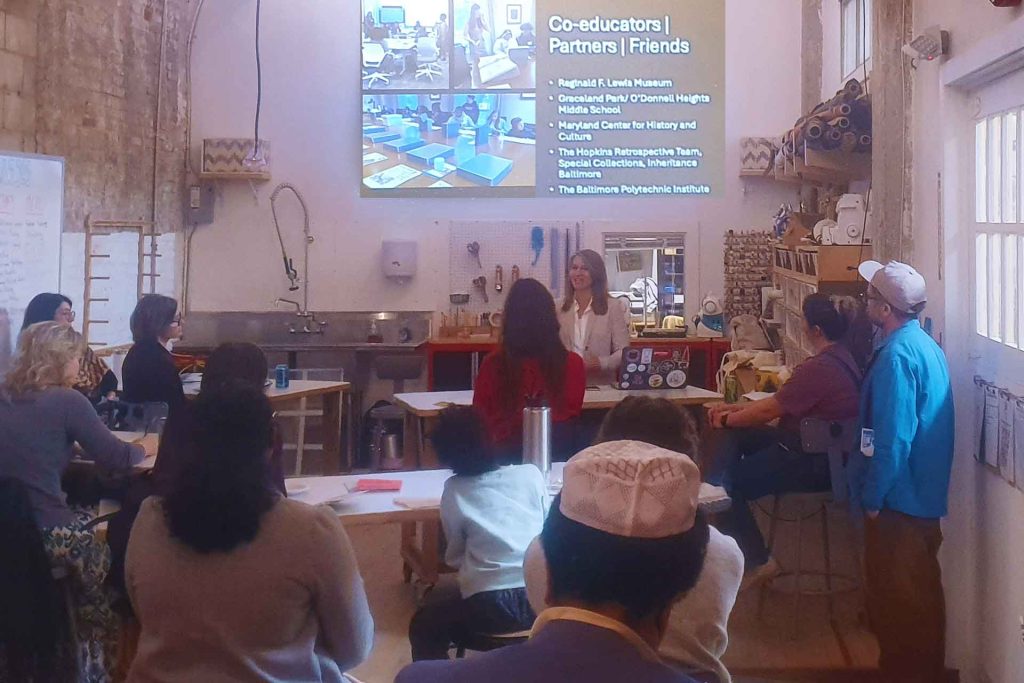
The second session, held at the Station North Tool Library, featured presentations on reciprocal community engagement that encourages collective empowerment. The session highlighted the four elements central to community-based learning outlined in the Center for Social Concern’s faculty workshop on Recommendations for Engaging in Baltimore as a Hopkins Affiliate. The elements are developing an asset-based mindset; practicing lifelong learning and crucial self-reflection; recognizing and challenging power imbalances; and accepting multiple perspectives and embracing both/and thinking.
Faculty members offering Engaged Scholar courses include Homayra Ziad, Victoria Harms, Anne-Elizabeth Brodsky, and Nate Brown. They have worked with the Baltimore Museum of Art, Baltimore Polytechnic Institute (a public STEM-focused high school), the Reginald F. Lewis Museum for African American History and Culture in Maryland, the Maryland Center for History and Culture, Muslims for Just Futures, and Baltimore Symphony OrchKids (music education in K-12 city schools).
The courses’ interconnected goals are to guide students to think critically about social and civic issues, and to meet goals identified by the partner. Experienced community-engaged faculty maintain the courses’ rigor beyond their cohort year through the CSC’s Engaged Scholar Community of Practice in partnership with the Krieger School.
